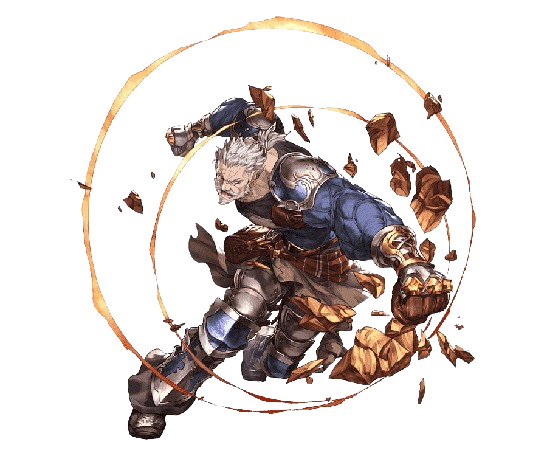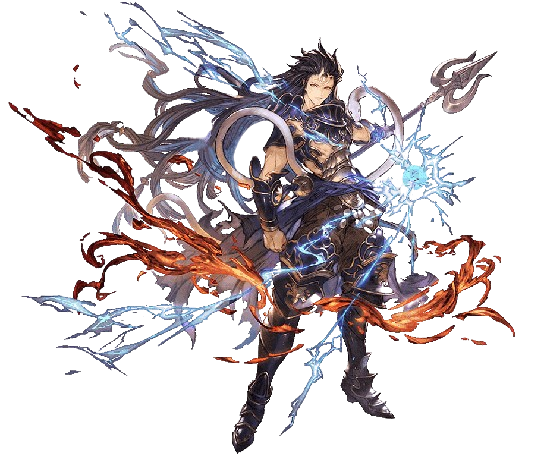Introduction
Fantasy games have become an integral part of modern entertainment, transporting players into realms where they can experience exciting adventures, complex narratives, and immersive gameplay. But beyond the allure of magic, dragons, and quests, these games offer valuable opportunities for mental engagement. Players are constantly faced with challenging scenarios that require critical thinking and problem-solving skills to succeed. With the involvement of a fantasy cricket game development company, these games are designed to push the boundaries of creative thinking, offering a platform that sharpens cognitive abilities in unique and engaging ways. In this article, we’ll explore how fantasy games serve as a training ground for these essential cognitive abilities and why they have a profound impact on players’ intellectual development.
Boost Your Fantasy Game Efficiency

The Role of Fantasy Games in Developing Cognitive Abilities
Fantasy games are more than mere entertainment. They are intricate ecosystems that challenge players to think beyond the obvious, make strategic decisions, and solve intricate problems. Whether it’s navigating through a series of puzzles, planning combat strategies, or managing limited resources, players must apply both critical thinking and problem-solving skills to succeed. These games are crafted by a game development company that specializes in building immersive worlds where players can enhance their cognitive abilities.
Games such as The Witcher, Skyrim, and Dragon Age transport players to worlds where decisions have consequences, and every choice can lead to a vastly different outcome. This ability to influence the game’s world through decision-making mimics real-life problem-solving scenarios, fostering a cognitive environment that promotes both creativity and logic. These are the hallmarks of a well-executed game development service that aims to create engaging experiences for players.
Understanding Critical Thinking in Fantasy Games
Critical thinking is the ability to think clearly, rationally, and independently. It involves analyzing information, identifying connections between ideas, evaluating arguments, and reflecting on possible solutions. In fantasy games, players are routinely put in situations where they need to assess the environment, consider different approaches, and anticipate potential outcomes. This level of complexity often stems from the work of a skilled game development agency, which integrates these challenging elements into the game design.
Take, for example, the game Divinity: Original Sin 2, where players must strategize during combat, often requiring them to think several moves ahead, assess the strengths and weaknesses of enemies, and adapt their tactics based on changing battlefield conditions. In such situations, players must think critically to weigh the benefits of each decision, making the gameplay more than just a matter of button mashing. They must rely on logic and analysis, sharpening their critical thinking skills with each encounter.
Problem-Solving in Complex Game Environments
Problem-solving is a central aspect of most fantasy games. Players are constantly tasked with resolving challenges that require not only logical thinking but also creativity. These challenges come in many forms—riddles, puzzles, resource management, combat scenarios, and decision-making dilemmas. The need to solve these problems often leads players to develop strategies, test hypotheses, and iterate on solutions until they find one that works.
In The Legend of Zelda: Breath of the Wild, players encounter various environmental puzzles that demand resourceful thinking. For instance, to access certain areas or defeat specific enemies, players must cleverly manipulate the game’s physics engine, using tools at their disposal in unexpected ways. Such intricate problem-solving tasks reflect the innovation of fantasy cricket game development services, which design immersive environments where resourceful thinking is essential.
This type of gameplay encourages experimentation, helping players develop resilience when facing obstacles and nurturing a growth mindset that sees failure as an opportunity to learn.
Critical Thinking and Problem-Solving Skills
Aspect | Critical Thinking | Problem-Solving Skills |
Definition | The process of actively analyzing, interpreting, evaluating, and reasoning | The ability to find solutions to specific challenges or issues |
Focus | Evaluating information, arguments, and evidence | Identifying the root cause of a problem and creating actionable solutions |
Key Processes | Analysis, interpretation, logical reasoning, questioning | Problem identification, brainstorming, testing solutions, implementation |
Purpose | To develop well-reasoned judgments or beliefs | To resolve issues efficiently and effectively |
Application | Broad application in learning, decision-making, and daily interactions | Applied when faced with specific challenges requiring practical solutions |
Skills Involved | Reflection, skepticism, evaluation, logical thinking | Creative thinking, analytical skills, decision-making, troubleshooting |
Tools and Techniques | Mind mapping, critical questioning, debate | Root cause analysis, trial-and-error, SWOT analysis, flowcharts |
Outcomes | Improved understanding, better decision-making, sound judgments | Effective solutions, conflict resolution, and task completion |
Time Frame | Continuous process throughout learning and decision-making | Specific process initiated when a problem arises |
Examples in Action | Analyzing the credibility of a news source | Finding a way to fix a malfunctioning device or resolving a dispute |
Enhancing Critical Thinking Through Narrative Choices
One of the most compelling features of fantasy games is their rich storytelling. Games like Mass Effect, The Elder Scrolls, and Baldur’s Gate often present players with complex narratives where their decisions directly influence the direction of the story. These choices are not always clear-cut; often, they involve moral dilemmas or ambiguous outcomes that require deep reflection and analysis.
In Mass Effect, for instance, players must decide whether to make decisions that benefit their team, save certain characters, or prioritize the greater good. This type of decision-making requires the player to engage in critical thinking by considering different perspectives, evaluating potential outcomes, and making informed choices based on logic and intuition. Such in-depth gameplay is the hallmark of a Fantasy Football App development company, where game designers work to create engaging and thoughtful player experiences.
Jump Into Action: Start Fantasy Game Project

Fantasy Games and Adaptive Thinking
Adaptive thinking refers to the ability to adjust one’s approach to a problem in response to changes in the environment or circumstances. Fantasy games often require players to remain flexible in their thinking, as many game scenarios are dynamic and unpredictable.
For example, in Dark Souls, players face formidable enemies that require them to adapt their strategies constantly. The game is notorious for its difficulty, and it forces players to learn from their mistakes. They must try new approaches and refine their tactics with each failure. This constant adaptation mirrors the problem-solving processes we experience in real life, where flexibility and persistence are key to overcoming challenges. These skills are further enhanced when players engage in games created by a Fantasy Baseball App development company, which designs flexible and evolving gameplay scenarios.
Cooperative Gameplay and Collaborative Problem-Solving
Many fantasy games also offer multiplayer or cooperative gameplay, where players must work together to solve problems. Games like World of Warcraft, Final Fantasy XIV, and Destiny 2 require players to communicate effectively, share information, and collaborate to achieve common goals. In these environments, problem-solving becomes a collective effort, where players rely on teamwork and diverse perspectives to overcome obstacles. Working with peers in-game often mirrors the real-life collaborative efforts seen in fantasy baseball app development services, where communication and strategic thinking are essential.
Collaborative problem-solving in games mirrors real-world teamwork situations, where communication and cooperation are vital. Players learn to trust one another’s judgment, delegate tasks based on individual strengths, and coordinate their actions for the greater good. These experiences enhance social problem-solving skills, which can translate to better collaboration in professional and personal settings.
Cognitive Flexibility and Open-Ended Exploration
Many fantasy games are designed as open-world experiences, where players can explore vast environments, discover hidden secrets, and take on quests at their own pace. Games like The Elder Scrolls V: Skyrim and The Witcher 3: Wild Hunt provide players with a sense of freedom, allowing them to approach challenges from multiple angles.
This open-ended exploration fosters cognitive flexibility, the ability to think about multiple concepts simultaneously and adjust strategies accordingly. Players are encouraged to experiment with different solutions and approaches, whether it’s solving a puzzle, outwitting an enemy, or completing a quest. This flexibility strengthens their ability to think outside the box and come up with innovative solutions to problems. Such open-world game design is often the result of expertise from a fantasy cricket game development agency, which specializes in crafting dynamic and interactive worlds.
Fantasy Games as a Learning Tool for Critical Thinking and Problem-Solving
Beyond entertainment, fantasy games are increasingly recognized as valuable learning tools. Educators and psychologists have noted how games can help improve cognitive functions, including memory, reasoning, and decision-making. By creating environments where players must apply critical thinking and problem-solving skills, fantasy games can effectively teach these abilities in ways that traditional educational tools may not.
Game-based learning also offers a more engaging way for players to practice these skills. Rather than passively receiving information, players actively participate in the learning process, developing critical skills through trial and error, experimentation, and reflection. Fantasy games thus provide an interactive and dynamic learning experience that can complement traditional education. This intersection of education and gameplay is something game studios focus on when they hire game developers who can blend learning and entertainment.
The Future of Fantasy Games in Developing Cognitive Skills
As technology advances, the potential for fantasy games to foster critical thinking and problem-solving skills continues to grow. With the rise of virtual reality (VR) and augmented reality (AR), fantasy games are becoming even more immersive, allowing players to engage with game worlds in unprecedented ways. These innovations offer new opportunities for cognitive development, as players navigate increasingly complex scenarios and interact with game environments in more intuitive and dynamic ways.
Moreover, as game developers continue to push the boundaries of storytelling and design, we can expect fantasy games to become even more challenging and rewarding for players. By fostering critical thinking and problem-solving skills, fantasy games will continue to play a significant role in shaping how we approach and solve real-world challenges.

Conclusion
Fantasy games are not just a source of entertainment; they are powerful tools for developing critical thinking and problem-solving skills. Through complex narratives, strategic challenges, and adaptive gameplay, these games encourage players to think critically, make informed decisions, and solve problems creatively. As we continue to explore the potential of fantasy games in cognitive development, it becomes clear that they offer much more than just escape; they provide a platform for learning and growth. With the continuous evolution of gaming, driven by a fantasy cricket game development company and other specialized agencies, these experiences will only deepen, equipping players with the skills they need to succeed both in-game and in real life.



